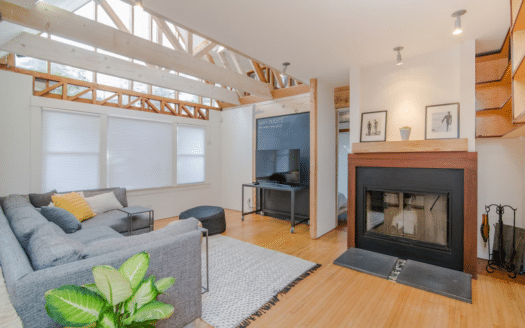The Ultimate Guide: Reverse Mortgage For 62 and Older in Lagos, Nigeria
Property Details
Fair question: Who is eligible for a reverse mortgage inside or outside Nigeria?
The home is often the largest asset for retirees, but they might not be ready to sell to take advantage of its value. A reverse mortgage may be useful in this situation. With a reverse mortgage, homeowners who are 62 years and older can borrow money against the value of their home while still living in and owning it. For some people, this kind of loan is a smart choice, but before you apply, you should be aware of how reverse mortgages operate.

The Function of a Reverse Mortgage
When you obtain a reverse mortgage, payments are made to you, the homeowner, instead of the lender.
Reverse mortgages come in three main varieties:
Single-Purpose: Some municipal and state governments provide a loan for a single purchase, such as significant house renovations. Although it might be the least expensive choice, this one is not widely available.
Private lenders provide proprietary reverse mortgages. Private loans could be the quickest, cheapest, and easiest to obtain, but watch out for cons.
Only FHA-approved lenders may offer Home Equity Conversion Mortgages, which are reverse mortgages underwritten by the FHA. This type is both the safest and most prevalent. Only the reverse mortgage backed by the FHA has the right to use the term “Home Equity Conversion Mortgage.”

Due to an upsurge in fraud, the FBI and HUD advise consumers to exercise caution while looking into reverse mortgage products. A reverse mortgage should never be coupled with free housing, investment opportunities, or assistance with foreclosure or refinancing; instead, get advice from an FHA-approved housing counselor before you apply.
How Is a Reverse Mortgage Paid?
A HECM offers various repayment options, unlike a traditional mortgage or home equity loan, allowing you to manage your monthly spending and cash flow better. You don’t have to pay back the loan until you pass away, leave your home, or experience another “maturity event” that makes the loan call due as long as you maintain your house and pay your property taxes, homeowners insurance, and if applicable, homeowners association dues. These maturity milestones are:
- Death of the last living borrower or a spouse who qualifies as a non-borrower
- Home is no longer the main place of abode.
- More than a year passes after the borrower leaves the property.
- The borrower doesn’t keep the asset up to date.
- The borrower neglects to pay the required homeowners association dues, insurance premiums, and property taxes.
Who is Eligible for Reverse Mortgages?
To be eligible for a HECM, you must fulfill the following requirements:
- Be age 62 or older
- Utilize your house as your primary abode.
- Own the property outright or have sizable equity in it

Pass a financial evaluation to verify that you can pay your property taxes, insurance, and maintenance obligations on time.
Your house also needs to adhere to HUD’s basic property criteria. Manufactured homes that meet FHA regulations, mainly those produced on or after June 15, 1976, and most houses and condos, are eligible.
HECMs are unavailable for properties with second mortgages or borrowers who owe delinquent federal debt.
Obtaining a Reverse Mortgage
In addition to fulfilling the conditions above, you must:
- Completing an application
- Obtain a financial and credit evaluation
- Consult an independent and FHA-approved reverse mortgage counselor before applying for the loan.
The consultation ensures you comprehend the advantages and disadvantages of a reverse mortgage so you can decide if it’s the ideal product.
Before getting a reverse mortgage, think about the following:
- How long will I be residing in my home?
- How can I achieve my retirement goals with a reverse mortgage?
- How would a reverse mortgage increase the security of my retirement?
- How should I include a reverse mortgage in my estate plan?
Reverse mortgages: Pros and Cons
There are certain disadvantages to getting this type of loan, but it can allow elderly homeowners access to money to pay for living needs while also staying in their homes.
A Reverse Mortgage’s Advantages
Recognize all the benefits of this financial strategy so you can see how it might benefit you.
Flexibility: You have three options for receiving your funds: a lump sum, regular payments, or a line of credit.
The payoff of current mortgage: You may use HECM money to settle your current mortgage.
No recurring payments are needed as long as you maintain the property, keep up with homeowner’s insurance and property taxes and reside in the house.
No additional taxes Loan proceeds are typically not regarded as taxable income. To ensure your scenario complies with the regulations, speak with a tax expert.
Heirs would benefit from a HECM since it would boost the amount of retirement savings the client could leave them.
Equity ownership: Your home is still legally yours. Any home equity left over once the loan is paid off belongs to you or your heirs.
Delay using retirement funds: A reverse mortgage’s proceeds allow you to postpone spending your investments and savings. Additionally, you might be able to delay taking Social Security payments, which could enhance your income by 8% a year up to age 70.
A Reverse Mortgage’s Disadvantages
Understanding the difficulties with this type of loan will help you decide if a HECM is the best option for you.
As you pull money from the loan and interest accrues, the loan balance rises over time.
Asset reduction: As you consume home equity, your assets are diminished. You can still leave the house to your heirs, but they will be responsible for paying off the remaining debt.
Higher fees: Compared to a conventional mortgage, fees could be higher.
Benefits: This could impact a person’s eligibility for need-based government programs like Medicaid or Supplemental Security Income. To learn more, speak with a benefits expert.
Possibility of foreclosure: When a “maturity date” takes place, the loan becomes due and must be repaid. When a loan is called due and you cannot pay it back, the lender has the right to foreclose.
Mortgage insurance is necessary for HECMs to FHA regulations.
Complex terms: Because this kind of loan arrangement may be difficult to grasp, you must do so before signing on the dotted line.
Bottomline
You might want to get out of your reverse mortgage even after learning about them. If so, you have various options, including selling your house, using your own money to pay it back, or refinancing to pay off the loan or receive better terms. You might be able to easily cancel the loan without incurring any fees if you change your mind before the transaction is closed. What you want to do with your house, how long you’ve had the loan, and your financial situation will all affect which choice is best for you. Contact us.




